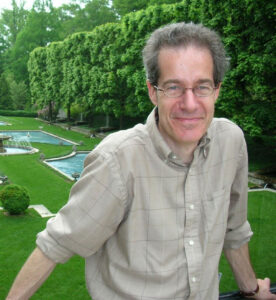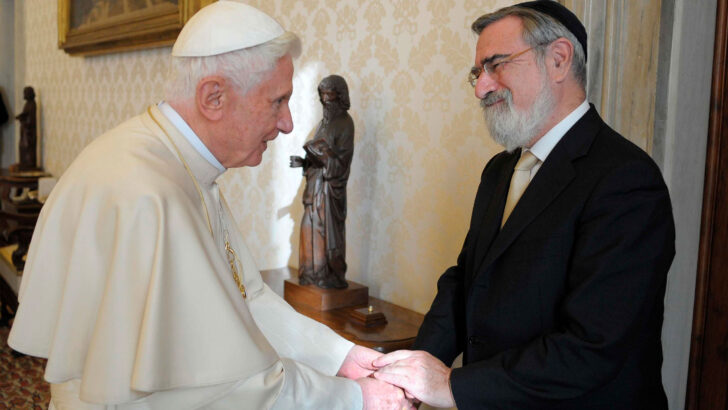How to be good. What Socrates can teach us about the art of living well, by Massimo Pigliucci (Basic Books, £10.99 /€12.99)
The Power of Ideas. Words of Faith and Wisdom, by Jonathan Sacks (Hodder and Stoughton, £20.00 /€20.00)
Frank Litton
Both these books inform our moral compass, helping to sharpen its direction and deepen our understanding. They are needed. For our political elites have dispensed with moral compasses, finding their way by the play of power.
The Consultative Forum on International Security (June 2023) provides the latest example of the nihilism that afflicts our politics and to which these books deliver an antidote.
We should be grateful to Michael Martin and the Department of Foreign Affairs for assembling a diverse group of experts for the public discussion of foreign policy.
We need to consider how to position, and equip ourselves, as the world grows more dangerous and the threats of climate change become clearer. I learnt a lot from my (virtual) attendance.
One lesson stands out: how far we have travelled from what we are instructed were the dark ages of the 1950s, the de Valera era. Then we had a robust sense of ourselves as a sovereign state, convinced that we had a role to play on the world stage.
And we did, to good effect. For instance, our minister for external affairs, Frank Aiken, made substantial contributions at the United Nations, notably his contribution to the Nuclear Test Ban Treaty. Nothing of this spirit was evident at the forum.
Following the Whitaker path, the national purpose has been narrowed to economic growth. Now we are content with a subaltern role; crafty servants of international capitalism, paying obeisance to the powers-that-be in Brussels.
Present, as the background of all the debates, was the question whether changed circumstances meant that we should change the character of our alliances, or enter new ones: join NATO or extend our involvement in EU defence initiatives.
Our Constitution tells us that “Ireland affirms its devotion to the ideal of peace and friendly cooperation amongst nations founded on international justice and morality” (Article 29.1) Inescapable questions follow.
I suppose there are no circumstances in which the taking of innocent life can be justified. Is joining an alliance armed with nuclear weapons whose raison d’être is the slaughter of innocents compatible with this principle?
Interdependence does bring obligations. We benefit from our membership of the EU. We should be prepared to pay our dues, which include contributions to the defense of the Union.
We have, however, to take the character of the Union into account in assessing our obligations. Consider a continuum: at one pole we have an imperial order dominated by one or two great powers. They find it expedient to incorporate smaller, weaker powers on their periphery who find sufficient benefits to acquiesce in their hegemony.
The calculus is the balance of powers, the matching of needs and alternatives. At the other pole we have an association of nations who find in a shared tradition the resources to act in solidarity. The calculus is the common good. Where does the EU lie on this continuum? What are the implications of its position for our obligations? These central questions were not posed.
Given an even a rudimentary ‘moral compass’ they would not have been ignored.
Where might we find a moral compass?
As Prof. Pigluicci, philosopher and biologist, professor of philosophy at New York City College, demonstrates Socrates is a good, perhaps the best, guide for those starting the search for a moral compass.
In his dialogues, reported by Plato, he questions and provokes his interlocutors into awareness of the limitations and deceptions in the drama of everyday life whose roles and routines shape our lives. He opens up a new perspective, the ethical.
The good and the true that we find in this perspective can bring us into conflict with the well-established opinions that rule our societies as the execution of Socrates testifies.
This tension is at its highest in the realm of politics.
What is justice, asks Socrates in Plato’s Republic. As the dialogue proceeds and Socrates undermines the view that it can be found in a society’s conventions and pieties, Thrasymachus, jumps into the conversation. The answer is simple: what we call justice is no more than the advantage of the powerful. Might is right.
Socrates exposes the incoherence of this view. Justice is real, the problem is to realise it. The Republic explores how this might be achieved. Prof. Pigluicci does a fine job in bringing this problem alive.

The question of what is a good life, confronts us all. It is not just a question of identifying what contributes to human flourishing, it is also a matter of character, developing the dispositions, or virtues that Aristotle analysed, that keep us on track amidst temptations and sufferings.
This was a preoccupation of the Stoics, and Prof. Pigliucci provides a succinct introduction to their thought. Plato, Aristotle, the Stoics play an important role in the Judeo-Christian tradition. Indeed, it was that tradition that carried them into our common European inheritance.
Of course, Jews and Christians encompass them from the perspective of the sacred. Jonathan Sacks (1948-2022) was an English Orthodox Rabbi who served as chief Rabbi of the united Hebrew congregation for 12 years. His deep engagement with the tradition was matched by his mastery of communication.
It was his ability to listen to difficulties, questions, anxieties, that lie beneath the certainties of our secular age, while acknowledging its achievements, that made him so successful an exponent of the sacred and the ethical.
His intelligence and skill is manifest in The Power of Ideas: Words of Faith and Wisdom, a collection of his writings that span short reflections (‘thoughts of the day’) articles, sermons, lectures.
Prof. Pigliucci would make a fine present for a student in the final years of secondary school. Rabbi Sacks is a gift for all those who wish to see the sacred and the ethical brought to life.


 Pope Benedict XVI meets Rabbi Jonathan Sacks during a private audience at the Vatican in 2011. Photo: CNS
Pope Benedict XVI meets Rabbi Jonathan Sacks during a private audience at the Vatican in 2011. Photo: CNS 